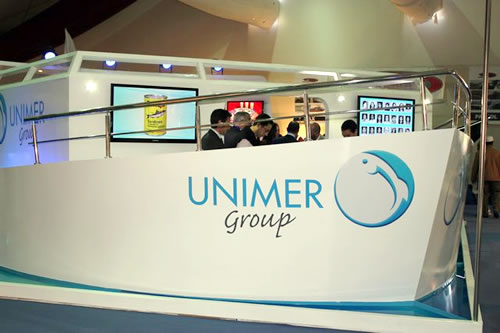In an explosive revelation, Moroccan fishmeal company Unimer has found itself at the center of a massive drug trafficking investigation after authorities seized 3.6 tons of cannabis resin (chira) hidden in a shipment of fishmeal at the Casablanca port. The shipment, destined for Belgium, has sparked a wave of speculation and intense scrutiny.
Unimer swiftly issued a statement distancing itself from the alleged trafficking attempt, underscoring its reputation as a key player in Morocco’s seafood industry with decades of incident-free exports: “Following the seizure by customs authorities at the port of Casablanca of a shipment of chira hidden in a fishmeal container exported by Unimer Proteins, a subsidiary of the Unimer Group, an investigation is underway to uncover the circumstances and identify those involved in this incident.”
The company reaffirmed its commitment to cooperating fully with authorities and warned of potential legal action against anyone implicated in the scheme.
Unimer’s operations span 16 industrial subsidiaries, handling over 1,500 shipments annually to international partners. The company emphasized that all its exports adhere strictly to regulatory procedures, claiming this was an unprecedented incident in its history.
The case first made headlines on December 11, when Morocco’s General Directorate of National Security (DGSN) revealed details of the drug bust. According to their report, a joint operation involving customs officers and police—with assistance from a canine unit—uncovered the cannabis resin concealed within the fishmeal shipment.
A security source highlighted the meticulous nature of the smuggling attempt, with the drugs expertly hidden to avoid detection. Casablanca’s judicial police, under the supervision of the Public Prosecutor’s Office, are now investigating the origins of the shipment, its intended destination, and those involved in the criminal network.
Initial findings suggest potential collusion between factory employees, logistics staff, and customs officials. The container was reportedly sealed at Unimer’s factory in Safi by a customs officer before being transported to the port. However, testimonies reveal irregularities in this process, with claims that the shipment was not properly sealed inside the factory—a stark deviation from standard protocol.
Further investigations have revealed that the fishmeal container, weighing 19 tons, was part of an ongoing business relationship with a Belgian company. Four previous shipments had been completed without any issues, raising questions about how this breach occurred and whether it signals a deeper, systemic vulnerability.
This scandal has cast a shadow over Morocco’s export industry, particularly within the highly-regulated seafood sector. As the case unfolds, it raises pressing questions about the adequacy of oversight mechanisms at various stages of the export process, from factory sealing to port inspections.
While Unimer maintains its innocence, the company’s reputation and the integrity of its export operations are under intense scrutiny. Moroccan authorities are now racing to dismantle the international drug network implicated in this incident and to ensure such breaches do not recur.
As investigations continue, the incident serves as a stark reminder of the intricate methods drug traffickers employ and the vigilance required to combat such operations.
